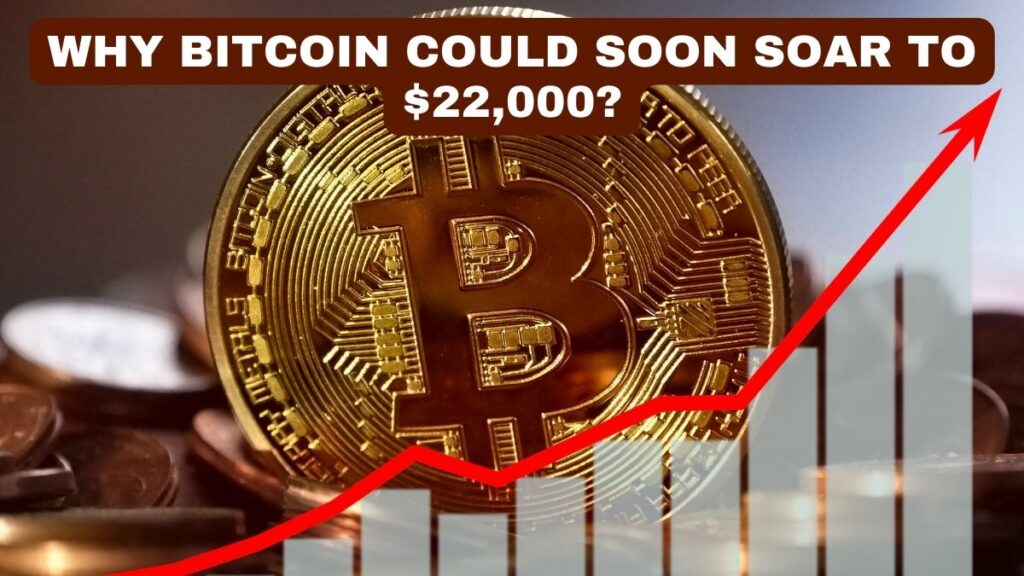
In the latest edition of The Market Report, we explore the intriguing factors that may propel Bitcoin to the impressive $22,000 mark. All the while, we consider the insights of BitMEX co-founder Arthur Hayes, who argues that the bull market had its genesis back in March.
The Bitcoin Trajectory
Hosted by the perceptive analyst Marcel Pechman, Cointelegraph’s The Market Report delves into indicators pointing to Bitcoin’s imminent climb to $22,000. But what exactly is fueling this projection? It’s a fusion of diverse elements shaping the cryptocurrency landscape.
Bitcoin: Investor Sentiment and Grayscale’s Legal Triumph
Grayscale Investments recently secured a significant legal victory against the United States Securities and Exchange Commission (SEC) on August 29th. Yet this high-profile win, anticipated to be a game-changer, has cast doubt due to its delay in several spots of Bitcoin exchange-traded fund applications.
Adding to the intrigue, the SEC’s legal actions against major players like Binance and Coinbase loom large. Speculation also swirls about potential charges from the U.S. Department of Justice linked to money laundering and transactions involving Russian entities. These legal skirmishes keep the crypto community on edge.
To learn more about this topic, please watch this YouTube Video from our YouTube channel “Cryptowini”.
Bitcoin: Inflation and the Federal Reserve
Across the United States, inflation has receded slightly, settling at 3.2%. Furthermore, the U.S. Federal Reserve is gradually tightening the reins on liquidity in financial markets. The monetary tightening has raised concerns among investors.
Arthur Hayes and Pivotal Moments
BitMEX co-founder Arthur Hayes contends that the Bitcoin bull market officially commenced in March. His viewpoint hinges on pivotal events, such as the fallout involving Silicon Valley Bank and the subsequent intervention of the U.S. Treasury Department in the cryptocurrency realm.
The U.S. Dollar Index
Pechman aligns with Hayes’ perspective but raises pertinent concerns regarding the U.S. Dollar Index. The index gauges the U.S. dollar’s strength against other major foreign currencies like the euro and the Swiss franc. Interestingly, it currently stands at the same level as six months ago.
Investors are grappling with the realization that, in the event of a global economic downturn, other nations may face collapse before the United States. The U.S. dollar remains the preeminent safe haven.
The Federal Reserve’s Position
Ultimately, Pechman suggests that the Federal Reserve might not be overly concerned about potential economic turbulence resulting from efforts to rescue banks. This is because U.S. Treasuries and the U.S. dollar are still regarded as the safest options.
Frequently Asked Questions (FAQs)
1. What is Bitcoin?
- Bitcoin is a digital or virtual cryptocurrency that enables peer-to-peer transactions on a decentralized network. It operates without a central authority like a bank and relies on blockchain technology for security and transparency.
2. How can I buy Bitcoin?
- You can buy Bitcoin through cryptocurrency exchanges like Coinbase, Binance, or Kraken. You’ll need to create an account, complete identity verification, and link a payment method (bank account or credit card) to make a purchase.
3. What is blockchain technology?
- Blockchain is a distributed ledger technology that records all transactions across a network of computers. Each transaction, or block, is linked to the previous one, forming a chain. It’s known for its transparency, security, and immutability.
4. Is Bitcoin legal?
- The legality of Bitcoin varies by country. In many countries, it’s legal and regulated, while some have imposed restrictions or bans. It’s essential to check your local regulations and comply with tax requirements when dealing with Bitcoin.
5. How is the price of Bitcoin determined?
- Bitcoin’s price is determined by supply and demand factors in the open market. It can be influenced by various factors, including investor sentiment, news events, adoption, and macroeconomic conditions.
6. Can I lose my Bitcoin?
- Yes, you can lose your Bitcoin if you forget your private keys or access credentials to your wallet. It’s crucial to store this information securely, so consider using hardware wallets or other secure storage methods.
7. What’s the future of Bitcoin?
- The future of Bitcoin is uncertain but promising. It has gained acceptance as a store of value and a digital gold. Its adoption of payments as a mainstream currency is still evolving, and its long-term success depends on regulatory developments and market trends. Many investors see it as a hedge against inflation and a potential asset class for the future.
In Conclusion
So, why does all of this matter? The convergence of these factors paints a compelling picture of Bitcoin poised for a substantial upswing. For deeper insights and comprehensive analysis, be sure to capture the full episode of The Market Report on the Cryptowini YouTube channel. And, of course, don’t forget to hit the “Like” and “Subscribe” buttons to stay updated with our latest content.
Disclaimer: The information provided in this article is for informational purposes only and should not be construed as legal, tax, investment, financial, or any other form of advice. This message does not constitute a solicitation, recommendation, endorsement, or offer to buy or sell any crypto assets or other financial instruments. Always invest responsibly and seek independent financial advice if you have any doubts. Make sure to fully understand your purchases and the associated risks by referring to the issuer’s or advertiser’s terms and conditions and support pages.
Also Read
BarnBridge (BOND): Your Passport to Financial Freedom in DeFi’s Wild West 2023!
Binance Drops a Shocking BOMBSHELL: Say Goodbye to BUSD Forever in 2023
What is Cryptocurrency? How does it work?-Cryptocurrency for Beginners in 3 Easy Steps






























